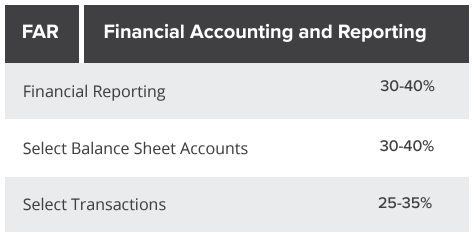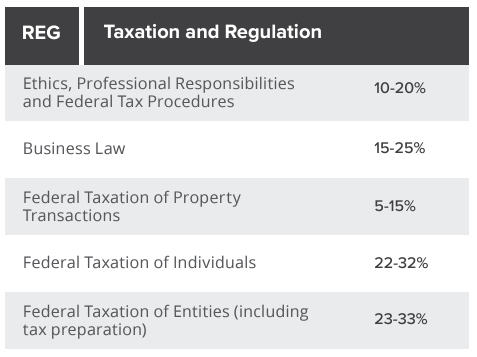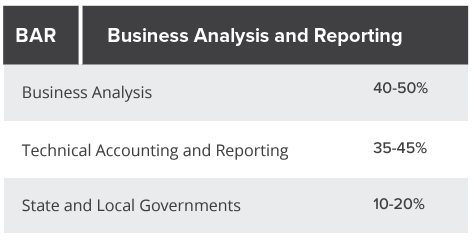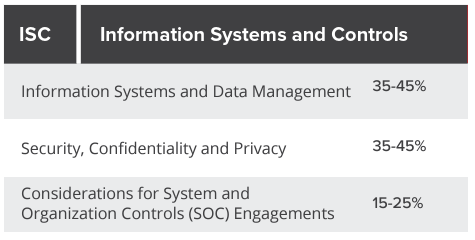Contact Us : 800.874.5346 International: +1 352.375.0772

My name is Jia Yee, and I am a graduate student at the University of Texas at Austin. I am currently a Gleim Campus Rep and studying for the CPA Exam.
If you are a student and considering sitting for the CPA Exam, something you should be thinking about is taking classes that cover the material necessary to test. The educational requirements for Exam eligibility and licensure vary by state, but the Exam itself is uniform. However, not every university offers CPA review courses, so ensuring you have exposure to all the content covered in each section is crucial.
In this post, I will share my recommendations on which university courses to take and in what order to best prepare you for the CPA Exam. I’ve used names modeled after what they are called at my university, but I’ve thrown in some alternative names and keywords you can search for since every school has their own system.
First, it is important to know what sections are a part of the CPA Exam.
The CPA Exam requires you to pass four parts total, three of which are mandatory “core” sections.

All candidates have to take these three core sections, meaning it is increasingly important to take classes that will reinforce your knowledge on these subjects.
In addition to passing the three core sections, candidates must choose a fourth “discipline” section.

The choice is up to the candidate, and the CPA license is the same regardless of which discipline you choose to take.
Candidates can take the exams in any order they choose, but I usually find that professors or directors of accounting programs have a recommended timeline of when to take each section. For the purpose of this post, I will follow the order listed below.
In the AUD Exam, students will be tested on the knowledge and skills that CPAs must demonstrate when performing audit, attestation, and review service engagements for issuer and nonissuers entities. You’ll also be tested on concepts related to professional responsibilities, including ethics, independence, and professional skepticism.

For this section, I would recommend taking:
Second, the FAR section assesses the knowledge and skills one must demonstrate regarding the financial accounting and reporting frameworks used by both public and private business entities, not-for-profit entities and state and local government entities. The frameworks that are eligible for assessment are FASB, SEC, AICPA, GASB, and IASB. In my opinion, the FAR exam is the most content heavy and will require you to utilize knowledge learned from multiple courses.

Courses for this section include:
Intermediate accounting I and II looks into the complexities of the balance sheet accounts, which is a large portion of the exam. Most students take intermediate accounting around their sophomore or junior year and by the time they start to prepare for FAR, the knowledge is so far removed that the review process may be difficult. Therefore, if you are taking graduate classes, FSA and advanced accounting will help refresh and reemphasize some of the crucial concepts for the exam.
REG makes up the last of the core exams and tests the knowledge and skills a CPA must demonstrate with respect to U.S. federal taxation, U.S. ethics and professional responsibilities related to tax practice, and U.S. business law. This test also assesses tax compliance for individuals and entities with a focus on recurring and routine transactions.

For this section:
Your choice of discipline will direct which courses to take. If you are an accounting major, a large part of the exam content will have been covered in your upper-level courses. The choice is up to you to further your interest in a particular aspect of accounting or tailor your skills towards a certain profession.

I have heard that if you enjoy the more technical aspects of accounting, such as financial reporting and analysis, or are interested in corporate accounting, BAR may be the discipline for you. Careers in this direction are often involved in analyzing financial statements to make decisions and report to investors and other stakeholders. Higher level positions with BAR include becoming a controller, chief accountant, Chief Financial Officer (CFO), or Chief Executive Officer (CEO).

In addition to the courses listed under FAR, students should aim to take courses in:
TCP focuses on advanced individual and entity tax compliance with additional content on personal financial planning and entity planning. If you choose this discipline, be prepared to take very complex taxation and finance courses. A thorough understanding of the law and an interest in reading court cases will be helpful in digesting the information. People pursuing this specialization may wind up in tax departments, the tax service line in public accounting firms, the government, banks, hedge funds, or private tax practices. While not required for the exam, many schools offer International Taxation or specialized tax courses within a sector such as oil and gas.

In addition to the courses listed under REG, course suggestions include:
Lastly, ISC covers technology and business controls for candidates interested in pursuing a career in assurance or advisory services related to business processes, information systems, information security and governance, and information technology (IT) audits.

In addition to the courses listed under AUD, some courses helpful in this area would be:
People that choose this discipline usually have a heavier IT or information systems background and may take courses in coding and data analysis. Some future opportunities could include a data manager, IT auditor, internal auditor, Chief Information Officer (CIO), or Chief Technology Officer (CTO).
These are just some ideas for courses if you are interested in the CPA designation. It can be a confusing process, so starting with your department head or a CPA review coordinator can help you get on the right track with your educational requirements. Happy studying!